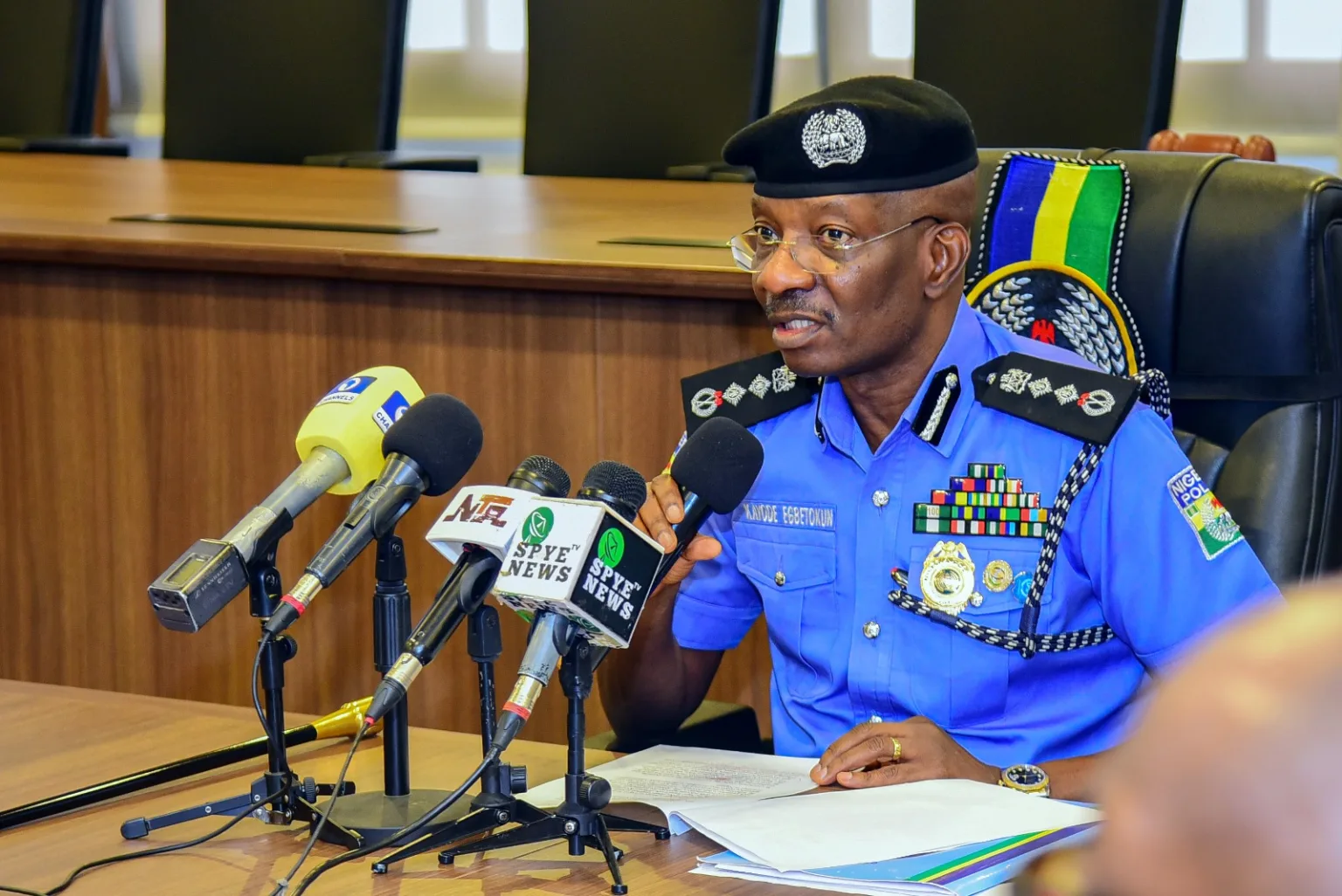Inspector-General of Police (IGP) Kayode Egbetokun and Speakers of State Houses of Assembly clashed yesterday over agitations for the creation of state police.
They spoke at the constitutional review legislative dialogue on the national security architecture tagged: “Nigeria’s peace and security: the constitutional imperative”.
The dialogue was organised by the House of Representatives Committee on Constitution Review in collaboration with the Office of the National Security Adviser (ONSA).
Advancing his opposition to the proposal, which had been adopted by governors, Egbetokun said that rather than create state police, the Nigerian Police Force (NPF) should be strengthened and well-funded to carry out its constitutional responsibility.
But the Speakers’ Conference, through its Chairman Adebo Ogundoyin (Oyo State) said the security challenges in the country can better be addressed with a multi-level policing which include allowing for the establishment of state police.
According to Egbetokun, the NPF is constitutionally established under Section 214(1) of the 1999 constitution as amended, which provides that “there shall be a police force for Nigeria which shall be known as the Nigerian Police Force and subject to the provisions of this section, no other police force shall be established for the federation or any part thereof.
“Furthermore, Section 215(1) provides for the appointment of the Inspector-General of Police by the President on the advice of the Nigerian Police Council (NPC). It also places the operational command and administration of the force under the leadership of Inspector-General of Police.
He argued that the constitutional provisions clarify the centralised character of policing and the operational authority entrusted to the IGP under the supervision of the President and Police Council.
The police boss said: “As we gather here this morning (yesterday) to review the constitutional underpinnings of our security framework, we must admit that legal centralisation without operational decentralisation has imposed on the NPF to effectively discharge its mandate across Nigeria’s diverse terrain.
“Our national security landscape is growing increasingly complex. From the insurgency in the northeast, banditry and kidnapping in Northwest and central regions, to secessionist violence in the southeast, and piracy in the Gulf of Guinea, we are confronted with a multi-faceted array of tracks, each exposing gaps not only in our security capabilities, but more fundamentally in our constitutional architecture and constitutional institutional coordination mechanisms.”
Ogundoyin, Oyo State Houses of Assembly Speaker, restated his colleagues unwavering commitment to strengthen the nation’s security institutions and will continue to inspire confidence in the connected resolve to safeguard this nation.
He said: “As the Speaker’s House of Assembly nationwide, we know exactly where the issue pinches when it comes to a security because we all face our various types of insecurity in our states.
“We know that the president’s commitment is unwavering in strengthening our security institutions and to continue to inspire confidence in our collective resolve.
“From insurgency in the northeast, banditry and kidnapping in the Northwest and Northcentral to herders’ and farmers’ clashes in the Northcentral and also all across the South which directly affects food security which is another issue that is very important for us to address and protect.
“Therefore, this is an opportunity to align our legislative priorities with the realities faced by our people ensuring that the constitutional and legal framework of security evolves to be the present and future challenges of the Nigerian police force and other agencies who despite working under extreme challenging conditions continue to make sacrifices to protect our nation.
“Yet, it is now evident that centralised policing structure, no matter how well intentioned, has become overstretched. It is on this basis the Conference of Speakers of State Legislatures of Nigeria, subscribe partially to the establishment of state police and constitutional imperative.
“This is not a mere political position, it is a patriotic and strategic necessity. We recognise that the concerns have been raised regarding the potential abuse, the capacity, the limitations and inter-jurisdictional conflict.
“But these are not insurmountable challenges because everyone at the present situation of things. The Nigeria Police Force also face challenges and the state government across the federation also support them in their own day-to-day work.
